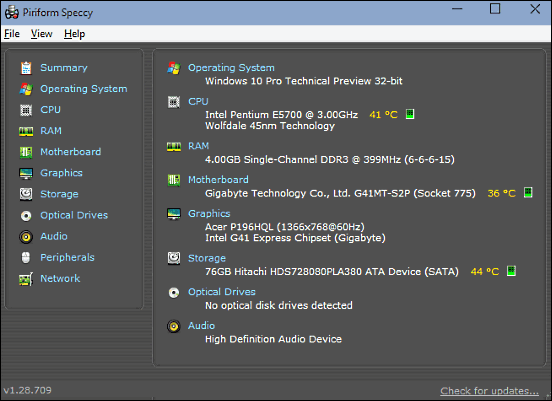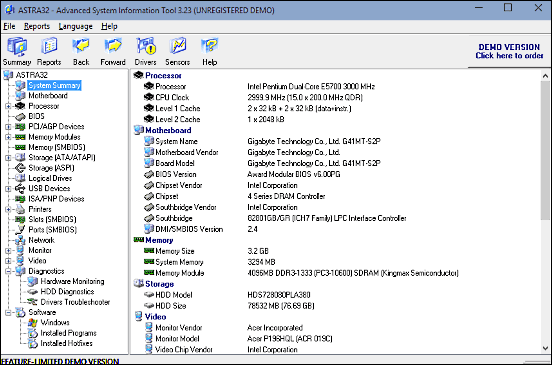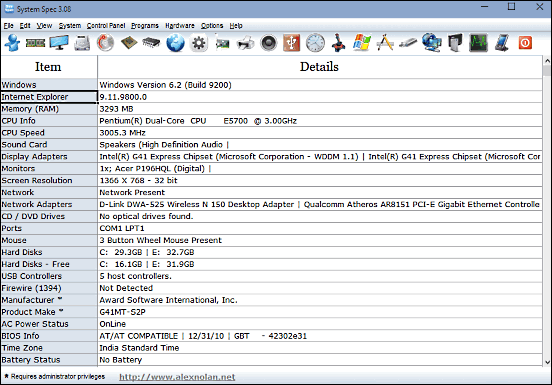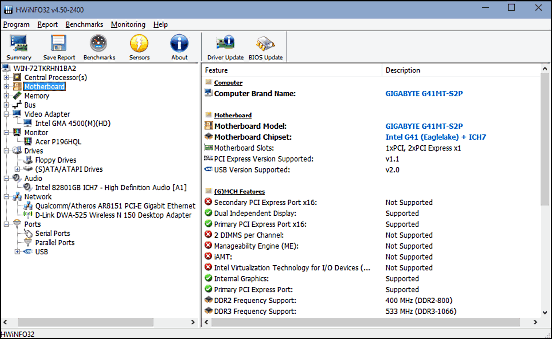The computers that we use today in our homes and at work are immensely powerful machines, and the result of years of (continued) development, both in terms of hardware (e.g. multi core processors, ultra fast RAMs, massive hard disks, and blazing fast network connections) and software (Operating Systems, firmware, general applications etc.). So the system that you use daily to play games, finish assignments, complete office reports, and watch movies is one extremely intricate combination of circuit boards and endless lines of code.
However, in the course of our day to day usage, we hardly realize this. And this is probably because of the fact that all the complexities of today’s computers lie underneath the surface. From the end user’s perspective, it’s all about getting things done as fast as possible without having to configure a hundred different settings. And modern day Operating Systems like the freshly minted Windows 10 ensure just that.
With that being said, have you ever wondered, just how many cores does your PC’s processor have? Or what is the temperature of your computer’s hard disk? These questions don’t just arouse curiosity, but can come in really handy for simple troubleshooting as well. But how do you find the answers to them?
Not a problem, as there are numerous system information software applications for that. Stoked? Let’s dig in, as we find out more about 4 best system information software for Windows 10.
Speccy
Coming from the stable of Piriform, the name behind CCleaner, the massively popular system optimization tool, Speccy is a lightweight, easy to use, and extremely feature rich system information utility. It provides comprehensive information regarding just about every peripheral connected to your computer. Wanna know how much RAM (and how many RAM slots) your PC has? Check. Intrigued about the operating temperature of your computer’s processor? Done. Curious as to how many tracks, sectors, and cylinders the hard disk is made up of? You got it. And this is just the tip of the iceberg. Speccy can provide an awful lot of information, and shows handy details about the OS as well. The application itself is easy to use, with a straightforward UI. When launched, Speccy takes a moment to analyze your computer’s hardware, and then provides the details. For a quick overview, you can check the Summary. However, if you’d like to know the minutest of details about things like OS, CPU, Storage, Graphics, & Motherboard, you can do so by clicking the appropriate category on the left, and its information should show up on the right.
Astra32
If you’re on the hunt for a feather light and portable system information tool that’s heavy on resources, Astra32 is something you should definitely take a look at. Short for Advanced Sysinfo Tool & Reporting Assistant, Astra32 provides a ridiculously insane amount of details about your computer and the devices hooked into it. So whether you’re curious about the processor’s clock speed, or the motherboard DRAM controller, or integrated graphics memory, or the installed DirectX version, or anything else, Astra32 has got you covered. The application has a dual pane interface, with the left navigation pane having a nearly endless hierarchical listing of connected peripherals. All you have to do to find more information about a device is find it under its sub-category, and Astra32 will display all the info it can about it in the right pane. In addition to that, you can also export all this information in the form of a report, which can be saved in a number of formats such as HTML, CSV, and plain text.
System Spec
The best thing about System Spec is that it provides a whole lot of information without overwhelming the user with it. Having a simple but incredibly easy to navigate user interface, System Spec is a joy to use. Front and center, System Spec displays summarized information about all the peripherals connected to the computer such as Display Adapters, USB Controllers, AC Power Status, and lots more. However, if you’d like to find out granular information about a peripheral, simply click on its icon on the top, and System Spec will display the information in a pop-up window. In fact, detailed information about each device is shown in a separate pop-up. You can also export some or all of the displayed information as a CSV or HTML file, akin to Astra32. However, the list of its features doesn’t end here. What separates System Spec from the lot is that it can also be used to directly launch a whole bunch of important system modules, such as Control Panel items, My Computer, Task Manager and then some more. And did I mention it’s portable?
HWiNFO32
Want a system information utility that’s portable, totally gratis, and packs in an insane amount of goodness? HWiNFO32 is exactly what you need. This powerhouse application provides heaps of information about your computer, and every single peripheral connected to it. But that’s what all of the above applications do, right? That’s true, but HWiNFO32 includes a lot of goodies that not only make it more versatile, but also a bit more suited towards power users. The base UI is pretty simple and straightforward, featuring a simple dual pane interface. The left pane, as usual, displays a categorized hierarchical listing of the connected peripherals. Expand a category & click on an item in it, and comprehensive information about it will be displayed in the right pane. From processor to system bus, and network adapter to USB ports, everything is there, and then some more. Probably the highlight feature that makes HWiNFO32 stand out from other applications is the real-time monitoring and analysis of all system components, for better reports. The program supports multiple types of reports, having detailed information, graphs, and whatnot. And of course, you can export all this information in the form of report/log files in popular formats such as CSV and HTML.
Conclusion
Owing to rapid advances over the years, computers of today have grown to be incredibly versatile and complex, both in terms of hardware and software. And this makes finding information about them a pretty tedious process. But thanks to the system information software applications discussed above, you can easily find out everything about the innards of your computer. Try these out, and let me know what you think in the comments below.



